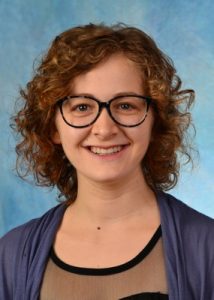By: Meredith Blumberg
On September 25th, the 2017 PrEP Summit was held at the JB Duke Hotel in Durham, NC. The event was co-hosted by the UNC and Duke Centers for AIDS Research (CFARs).
This summit served as an overview of the progress that has been made in North Carolina on promoting and researching PrEP. PrEP is an HIV prevention medication that, when taken daily, can significantly lower a person’s risk of contracting HIV; it is 99% effective at preventing HIV transmission when used correctly and consistently. The FDA approved the first medication for PrEP in 2012; since that time there has been substantial effort on the part of researchers, community members, and healthcare providers in NC to learn more about PrEP and increase its use. The summit also highlighted the PrEP research, education, and outreach that are still needed in our state.
This summit served as an overview of the progress that has been made in North Carolina on promoting and researching PrEP. PrEP is an HIV prevention medication that, when taken daily, can significantly lower a person’s risk of contracting HIV; it is 99% effective at preventing HIV transmission when used correctly and consistently. The FDA approved the first medication for PrEP in 2012; since that time there has been substantial effort on the part of researchers, community members, and healthcare providers in NC to learn more about PrEP and increase its use. The summit also highlighted the PrEP research, education, and outreach that are still needed in our state.
The summit covered three main aspects of PrEP: PrEP research, PrEP in the healthcare setting, and PrEP in the community. The highlights in regards to PrEP research included Dr. Amy Corneli’s talk on the various new research avenues for PrEP. She discussed several studies looking at the effect of PrEP in specific communities, including the PlusPills study examining the effects of PrEP in adolescents. This study showed that PrEP was safe for adolescents but also showed that adolescents adhered to PrEP less as time went on. She also discussed the IPERGAY study, which examined the approach of taking PrEP less frequently for HIV prevention. In this study, participants took PrEP 24 hours before and after sex; the preliminary results suggest that this method is effective at HIV prevention, but more studies are needed. Dr. Corneli also talked about alternative forms of HIV prevention, including vaginal microbicides, Maraviroc (an anti-retroviral drug), and long-acting PrEP injectables. All of these methods are currently being researched as ways to expand the ‘menu’ of PrEP options with varying delivery methods and treatment frequency to meet an array of preferences and needs.
The summit also focused on PrEP within the healthcare arena in North Carolina. A panel discussion featured NC healthcare providers Audrey Driskell from the Orange County Health Department, Dr. Barbara Johnson from the Lincoln Community Health Center, and Dr. Wesley Thompson from Ballantyne Family Medicine in Charlotte. Panelists talked about their organizations’ programs to increase the use of PrEP since its approval by the FDA. A common challenge cited by the panelists was healthcare providers’ hesitance to provide PrEP due to lack of knowledge about this strategy for HIV prevention, pointing to a need for increased education efforts among providers. Dr. Johnston noted that additional challenges with providing PrEP to populations in need include affordability and the tests that are required to get a PrEP prescription. Dr. Thompson noted that there needs to be more effort by providers to increase PrEP uptake in Charlotte, as the city has over 1/5 of new HIV cases in the state. He also pointed out that many providers are concerned that increasing PrEP use will increase condom-less sex. This is a valid concern that requires further research, but Dr. Thompson expressed his belief that this issue should not deter providers from prescribing PrEP to those who need it.
The third area of PrEP that was covered at the summit was PrEP outreach and programs developed by community leaders to increase the use of PrEP. Several community representatives were in attendance at the summit, and a community panel discussion featured Eliazar Posada from El Centro Hispano, Terry Munn from Triangle Empowerment Center, and Dr. Darrin Johnson from Quality Home Care Services, Inc. and Powerhouse. Panelists discussed the PrEP programs and outreach efforts of their organizations and the challenges in getting PrEP to their community members. Some of these challenges include community members not trusting providers, providers not prescribing PrEP due to lack of knowledge, lack of transportation to PrEP clinics, and the cost of PrEP. Panelists made important recommendations for researchers and providers to consider about some of the best ways to increase PrEP use moving forward from a community-centered perspective. For example, Terry Munn recommended that providers and researchers attend community events so that community members can begin to recognize them and know they are invested in the community as a way to build trust. Eliazar Posada also noted that using the terms “at-risk” and “high-risk” when talking to community members about PrEP is alienating and may discourage PrEP use.
The summit ended with all attendees breaking out into several discussion sessions: MSM and Oral PrEP, IDUs and Oral PrEP, Women and Oral PrEP, and Beyond Oral PrEP. In the MSM and Oral PrEP discussion group, participants discussed the lack of knowledge of PrEP among providers in Eastern North Carolina and how to address statewide differences in PrEP roll-out. Discussion also focused on how to take what we had learned from the day and translate it into action. This call to action was a good rallying cry to end the day, and ideally all the attendees – researchers, providers, and community members – will take some of the things they learned at this summit and will use them to increase PrEP knowledge, access and widespread use in North Carolina throughout this year. It will be important for all of us to come together as a community to work towards addressing some of the existing issues with PrEP.


